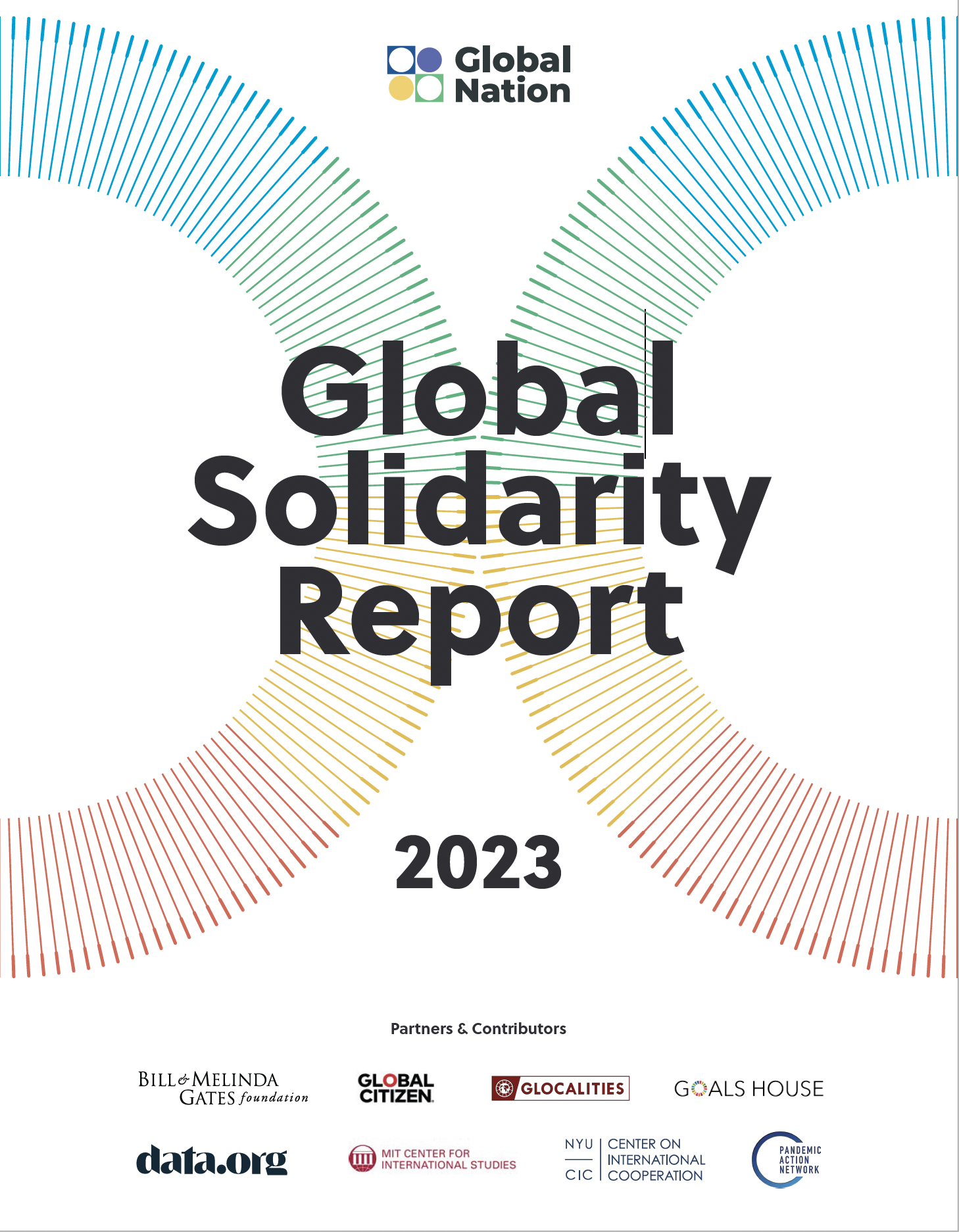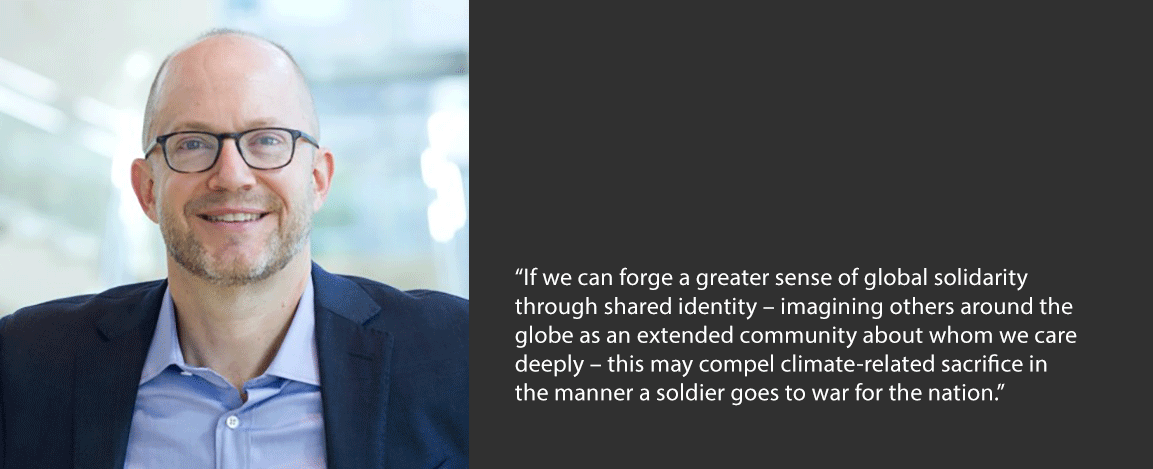CIS director and Total Professor of Political Science and Contemporary Africa Evan Lieberman will attend the UN General Assembly week for the launch of the Global Solidarity Report. Lieberman was among the contributors to the report, released on September 13, 2023, and CIS was among the sponsors.

The Global Solidarity Report will for the first time provide data-driven insights and talking points on solidarity, and set out a pathway for how to strengthen it. An initiative of Global Nation, funded by the Gates Foundation, the report’s contributors and partners include Prime Minister Mia Mottley, former Deputy President Phumzile Mlambo-Ngcuka, as well as Glocalities, the MIT Center for International Studies, NYU’s Center on International Cooperation, data.org, Pandemic Action Network, among others. The full report is available here.
Lieberman's excerpt is featured below:
Solidarity and Sacrifice for Planetary Wellbeing
Only with a much deeper and more widely embraced sense of global solidarity will we be able to arrest the catastrophic warming of our planet.
Such a statement might seem like mere platitude, but I intend it as a serious policy recommendation. Beyond the need for critical new technologies for alternative energy, food production, construction, transportation, and more, we also desperately require captivating ideas, symbols, and narratives that remind us of our common humanity.
To understand the motivation for such a call, consider why government leaders drum up patriotism and national pride before asking soldiers to go to war. Why do taxing authorities routinely highlight the national benefits of paying one’s fair share? Why does any organization try to build a stronger sense of identity among its ranks?
The answer is because individual members are more likely to contribute to the greater good when they internalize a sense of connectedness and belonging. As the French theorist Ernst Renan put it, “A nation is … a great solidarity constituted by the feeling of sacrifices made and those that one is still disposed to make” (Renan, [1882]1994). The ethical tug of such communities compels the types of “quasi-voluntary compliance” (Levi, 1988; Lieberman 2003) necessary to build armies and to collect taxes without extraordinary monitoring or punitive enforcement.
In a related manner, solving the climate crisis will require individual-level sacrifice, especially among those who have become accustomed to lifestyles that leave substantial carbon footprints. Most who read this essay already know that to reduce total greenhouse gas emissions we need to burn fewer fossil fuels, travel less, avoid consuming meat, etc. Nonetheless, even with record-setting heat, floods, and other climate-related crises, too few of us take the necessary steps. With respect to climate change, the world faces a daunting collective action problem: Individual efforts are unrequited, and the temptation to free ride on the efforts of others looms large. The multiplication of this very reasoning propels the crisis to ever greater depths.
If we can forge a greater sense of global solidarity through shared identity – imagining others around the globe as an extended community about whom we care deeply – this may compel climate-related sacrifice in the manner a soldier goes to war for the nation.
A core value of being a part of a global community must involve a sense of respect for the planet’s needs. Relatedly, members of the community must expect this from one another, such that not behaving in a pro-climate manner will be viewed as an ethical violation (Hur 2022).
While global solidarity will not be sufficient to solve the climate crisis, a much stronger dose of it appears quite necessary.
Hur, Aram. 2022. Narratives of Civic Duty: How National Stories Shape Democracy in Asia. Cornell University Press.
Levi, Margaret. 1988. Of Rule and Revenue. Berkeley: University of California Press.
Lieberman, Evan S. 2003. Race and Regionalism in the Politics of Taxation in Brazil and South Africa. Cambridge, UK ; New York: Cambridge University Press.
Renan, Ernest. [1882]1994. “Qu’est-Ce Qu’une Nation.” In eds. John Hutchinson and Anthony D. Smith. Oxford: Oxford University Press, 17–18.



